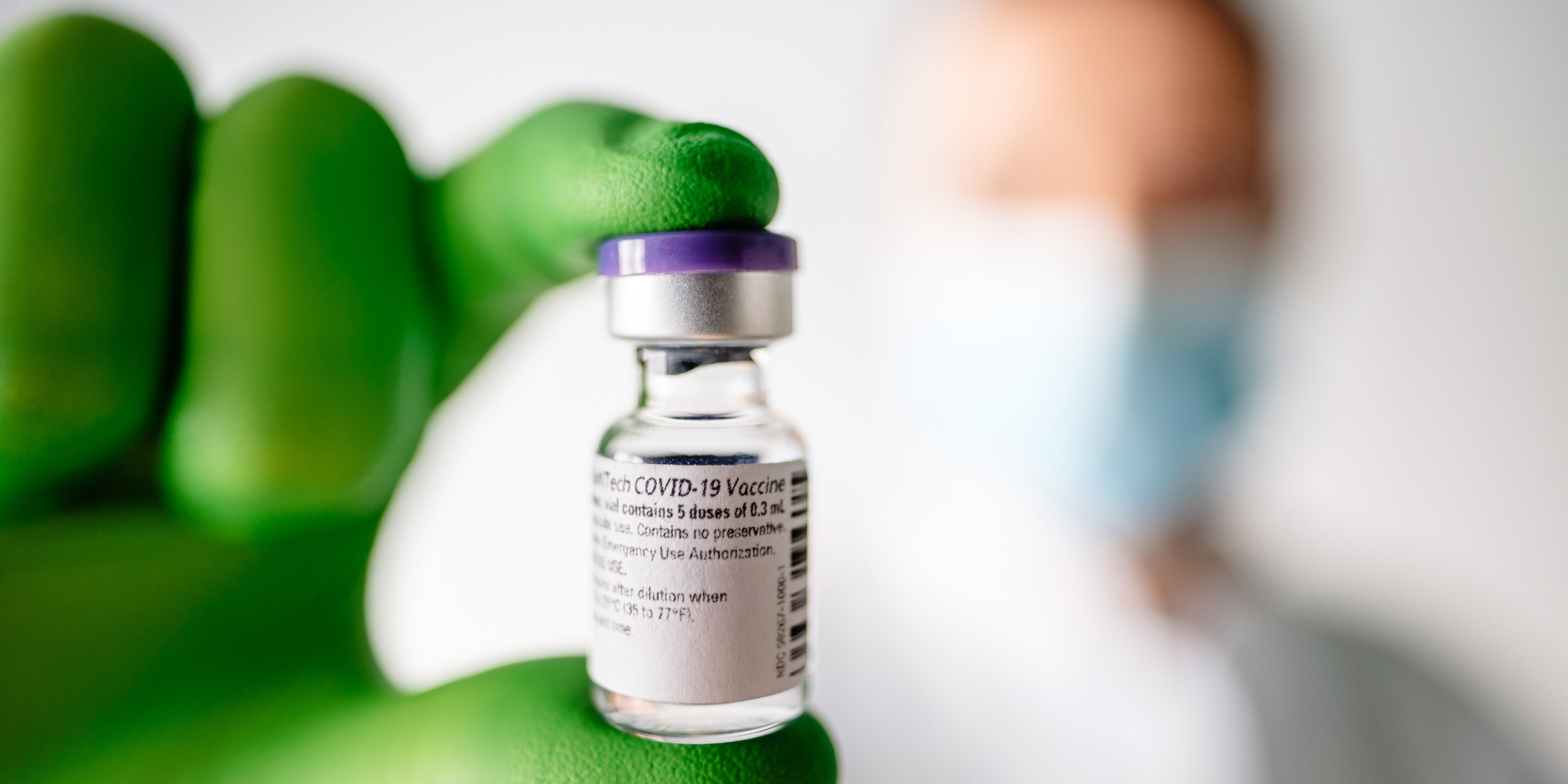Halal but not halal-certified? Key concerns about approved COVID-19 vaccines
The approved COVID-19 vaccines have been met with a mixed response from the Islamic theological community, halal associations and halal pharmaceutical experts as to whether the vaccine is halal, despite governments’ approval, including those of Muslim-majority countries.
In the UK, the Pfizer-BioNTech vaccine, which is being given to the public, was approved by the British Islamic Medical Association (BIMA) and other Islamic scholars, stating the vaccine was halal “based on the information available.”
According to the British government, the vaccine does not contain any components of animal origin, which has been a concern for Muslims as porcine, which is haram (non-permissible), or non-halal slaughtered beef could have been used.
The only doubtful ingredient in the vaccine is cholesterol, as it could be derived from animal fat, but the pharmaceutical company says it is from plant-derived sources or are synthetic.
The 57 member Organisation of Islamic Cooperation (OIC) countries’ Standards and Metrology Institute for Islamic Countries (SMIIC), which established a technical committee on halal pharmaceuticals (TC 16) in 2019, has not officially stated that the vaccine is halal or not halal.
Ihsan Ovut, the Secretary General of SMIIC, in an email to Salaam Gateway, said there is “no specific standard developed on the halal-ness of COVID-19 vaccines, but the ongoing project of TC 16, OIC/SMIIC WD 50 - Halal Pharmaceuticals – General Requirements will be defining the basic requirements in the manufacturing and handling of halal pharmaceuticals which includes medicines, vaccines and biological products, based on Islamic rules."
A primary issue is whether the key COVID-19 vaccines so far successfully developed - by Pfizer-BioNTech, Moderna, Sinopharm and Sinovac – can be claimed as halal if they are not halal-certified.
A halal pharmaceuticals expert says no.
“They cannot claim the product is halal. Self-declaration is not acceptable unless a third party does the certification process. If Pfizer or any other company claims the vaccine is free from animal materials, it still should not be accepted unless it is halal-certified,” said Dr. Mohammed Ali Al Sheikh, who works at SMIIC.
It is an opinion seconded by the halal certifier the World Halal Authority (WHA).
“From a halal perspective, we strongly believe that a thorough halal certification procedure should be adopted by current and future innovators of COVID-19 vaccines to satisfy the expectations and preference of Muslims at large,” said Dr Mohamed Elkafrawy, CEO of the WHA, responding to Salaam Gateway’s questions over email.
There are only a handful of qualified pharmacists with a knowledgeable background in halal certification who are able to actually certify such a vaccine, said Al Sheikh.
Biological products (including vaccines) are a biotechnology product, he explained. Biotechnology is a broad area, involving the use of living systems and organisms to develop or make products – such as enzymes, messenger RNA (mRNA), and large molecules - to grow the bacteria or the cell culture, which may have doubtful ingredients included in the production process. This also applies to new synthetic biological techniques.
The culture media may contain najis (unclean according to Islamic rules) ingredients like blood or non-halal ingredients like porcine cells. Even the enzymes and some other processing aids may come from non-halal sources.
The culture media for vaccine production can also be sourced from waste, such as animal blood. “This should be according to halal standards, free from any non-halal ingredients or najis,” said Al Sheikh.
For the COVID-19 vaccines, “we do not know the complete ingredients in the production process,” he added. “Pfizer claims there is no animal ingredient in the vaccine, which is correct according to the final product’s ingredients, but during the (early development) process we don’t know. They could be using a kind of enzyme that is not halal. You cannot be 100% sure until each component and material is checked, one by one.”
It is not clear if the vaccines developed by Moderna and the China National Pharmaceutical Group (Sinopharm) contain haram components. Bahrain, the UAE and Pakistan have approved the Sinopharm vaccine, while Singapore’s government has authorised the Pfizer-BioNTech vaccine for use in the country.
The Office of the Mufti of the Islamic Religious Council of Singapore (MUIS), stated on its website that the COVID-19 vaccine is “a basic necessity (daruriyyat)” as it is a life-saving inoculation. “The religious view of the COVID-19 vaccine must therefore take a more holistic stance that transcends the issue of halal-ness or permissibility of its ingredients,” said MUIS.
The religious and governmental permissibility given to the COVID-19 vaccines is expected to trump Muslim concerns as to whether the vaccine is halal or not, but it may nonetheless be a challenge to convince people to be inoculated in addition to the anti-vaccination phenomena proliferating in many countries.
A halal-certified vaccine may however be on the horizon. Malaysia’s MYEG inked a deal with China’s Anhui Zhifei Longcom Biopharmaceutical to conduct Phase 3 clinical trials in Malaysia and to obtain halal certification, based on Malaysia’s DSM standards. Indonesia’s state-owned PT Bio Farma, which is working with China’s Sinovac Biotech Ltd, told Salaam Gateway it is seeking halal certification for the COVID-19 vaccine.
“It is difficult to make a halal vaccine as the culture media or the enzymes needs to change. If it done from the start, with halal certification as the aim, that would be easier to develop,” said Al Sheikh.
(Reporting by Paul Cochrane; Editing by Emmy Abdul Alim emmy.abdulalim@salaamgateway.com)
© SalaamGateway.com 2020 All Rights Reserved

